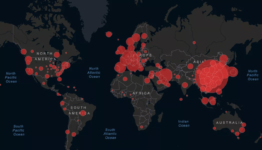Cybersecurity – A business issue

May 7, 2019
Held on Tuesday 7th May 2019 in London
According to the digital security firm Dark Matter at a conference in the Middle East, the cost to businesses from hackers will be measured in trillions by the middle of the next decade.
Businesses and public sector bodies such as Cathay Pacific, JP Morgan, Equifax, Cathay Pacific, Deutsche Bahn, British Airways and Talk-Talk have all been hit by cyber-crooks.
The breaches have often caused embarrassment, undermining confidence in new technologies such as mobile banking. The true extent of attacks isn’t always known because some individuals and firms aren’t always keen to disclose they have been attacks, the BSCC seminar, held at the offices of law firm Pinsent Masons, said.
The event was hosted by Pinsent Masons and sponsored by CCHQ, an organisation working with groups to defeat and manager cyber-security risks, and IBM, the global consultancy.
The seminar which was held in front of BSCC members from a variety of commercial and public sector fields, was moderated by David Mcllwaine, partner at Pinsent Masons. Speakers were Jean Lehmann, Chief Executive, Cyber Capital HQ; Jim Alvilhiera, VW Sales Leader, Watson Talent, IBM; Seaton Gordon, senior associate, Pinsent Masons; Jennifer Carven, senior associate, Pinsent Masons, and Claire Davidson, Partner, DRD Partnership.
A big theme of discussion was that cyber-security isn’t just about technology and how users must be savvier about avoiding attacks, but about human vulnerabilities. Staff must be trained, and HR departments must play a big role in guiding and monitoring cyber-security, panellists said.
The speed with which firms react to a suspected or actual breach and how they communicate to the wider world was also a big discussion point. There’s a fine dividing line between admitting a problem and telling clients and third parties about it, and creating panic, the panellists said. The more a firm prepares “fire drills” for such attacks, so that stakeholders in firms know what to do, the better. For example, organisations should have lists of key people to call in the event of a breach so that contact numbers aren’t in the same computers disabled by hackers.
One discussion point was about how employees at all levels must cultivate a kind of situational awareness around cyber-threats in much the same way that people have to be alert for problems when they are out on the road or travelling in an unfamiliar country.
It was pointed out that while organisations may have water-tight security in their offices and when people work in these premises, weaknesses occur when staff and contractors work from home, or use computers while travelling. Some of the worst breaches, for example, can take place at weekends or outside regular office hours.
To find our more information about our host, sponsors and panellists see:
https://www.pinsentmasons.com
https://www.cybercapitalhq.com
https://www.ibm.com/talent-management
https://www.drdpartnership.com
Related Articles

Maintain Business Continuity in a Global Health Crisis
The Coronavirus outbreak is a cause of concern for us all. This […]
Read MoreMarch 19, 2020

Baku E-Trade Forum
The 2nd Baku E-Trade Forum (BEF – 2019) has been held on […]
Read MoreOctober 21, 2019

Mauritius Blockchain Summit
Gulf Xellence invited our CEO to take part in the panel at […]
Read MoreJuly 31, 2019


